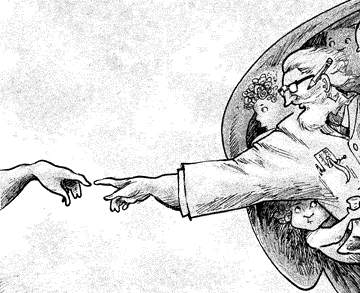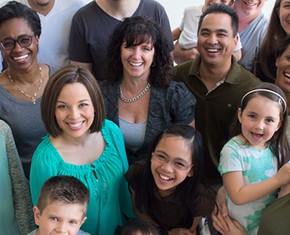The views expressed in our content reflect individual perspectives and do not represent the authoritative views of the Baha'i Faith.

[Editor’s Note: This is the seventh installment of a multi-part essay called “Questions from a Clergyman”. Click here to read from the beginning.]
“Are you saved?”
Christians frequently ask this question of others — I have been asked it repeatedly. For some, it determines who is “us” and who is “them”, who is “in” the group or “out” of the group. It often comes across as a preoccupation with the spiritual condition of others. Often, Christians themselves take their own salvation for granted.
My new pastor friend found it disturbing to think that salvation might depend on something other than believing a set of quantifiable articles of faith. We discussed it much during the “Cult Night” sessions and it featured prominently in his written letter:
“How can you tell someone is saved? And if our ‘works’ contribute to our salvation, how can we know how many commandments must be obeyed in order to be saved?”

In other words, how does one know whose belief is sincere and acceptable to God? I am content to understand that, ultimately, God alone knows the answer for each of us. Whether a man or woman professes to be a Baha’i and avows belief in the word of God and makes sincere efforts to obey His commandments and love His creatures; or professes to be a Christian, accepts Jesus as Lord and Savior, and believes in the Trinity, and the grace of God, and Christ’s blood atonement for our sins — God alone knows whether these professions are acceptable and sincere enough to warrant salvation.
All any believer can know, in either case, is that they have faith and are making a sincere effort to be and do what God would have them be and do. And, of course, they can know whether or not they truly love God. The rest is dependent on the grace of a God Who, Baha’u’llah tells us, is more friend to us than we are to ourselves.
Since these inner matters of faith exist solely between each believer and God, what purpose does it serve to be certain of someone else’s salvation? Certainly, if we would be faithful to the teachings of Christ, we cannot allow this knowledge to prejudice us for or against someone.
Baha’u’llah wrote:
He should forgive the sinful, and never despise his low estate, for none knoweth what his own end shall be. How often hath a sinner attained, at the hour of death, to the essence of faith, and, quaffing the immortal draught, hath taken his flight unto the Concourse on high! – Gleanings from the Writings of Baha’u’llah, p. 265.
We are responsible for our own spiritual progress and no one else’s. Only each one of us, as individuals, can determine how well or how poorly we are following God’s teachings and putting them into practice.
Read the next article in the series: Focusing on the Word of God
Read the previous article in the series: The Agent of Salvation
















Comments
Sign in or create an account
Continue with Googleor